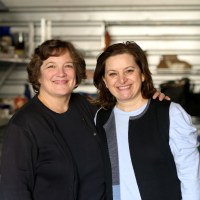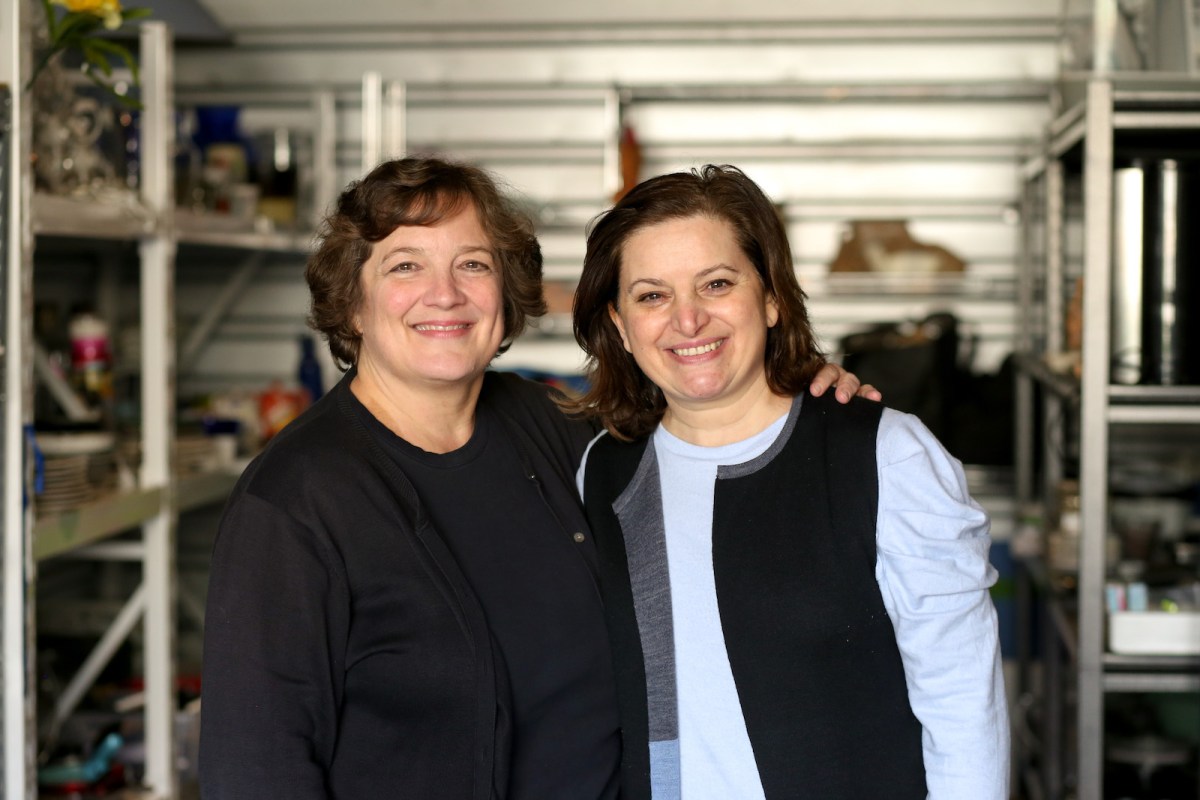The storage unit was impeccably organized. It was also freezing.
As I chatted with the heroic women who turned this place into an unlikely lifeline for refugees, the three of us buried our hands into the pockets of our coats to stay warm.
Kristin and Oraib (“It rhymes with ‘alright,’” she tells me when we meet) are an unlikely pair—a Mormon and a Muslim. But after helping over 200 refugee families resettle in greater Seattle over the last two years, they are proof that differences don’t have to divide.
In the storage unit, we’re surrounded by household items—side tables, several complete sets of dishes, towels, small kitchen appliances, etc. All the little things you forget you need until you don’t have them. It feels like a neatly arranged thrift store, ready to be “shopped” by newly resettled refugee families.
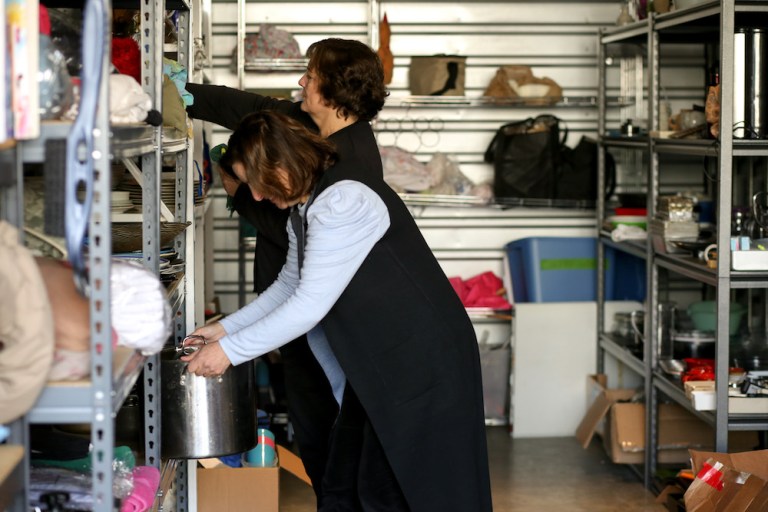
“The resettlement agencies like Jewish Family Service, World Relief, International Rescue Committee, do a wonderful job of getting families settled,” Kristin explains. “But they can’t provide everything. We need more in our life than the absolute necessities.”
“We want to help them turn their houses or apartments into homes,” Oraib adds.
The Welcome Home Refugees project was born in 2015 with the help of a local organization called Muslim Community Resource Center. It was Oraib’s brainchild—an effort to live out her faith, share the wealth in her community, and take care of those in need.
She met Kristin shortly after she started the project through a happy “coincidence” on Facebook… the result of their daughters being acquaintances at school. When Kristin saw Oraib’s post asking people to donate household items for newly arrived refugee families, she was immediately intrigued. Her church had recently challenged people to get out in their community to serve, and this was the perfect opportunity to do that.
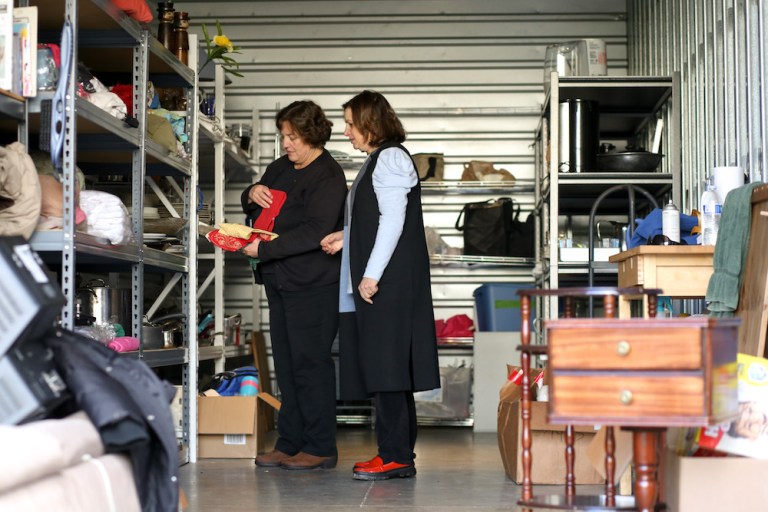
Since then, they’ve spent countless hours meeting people at the storage unit for drop-offs or pick-ups. They originally delivered items to refugee families, but found it was more dignifying to let families choose their own things.
After a year and a half, they had opened and closed the storage unit door so often, it actually broke. Their eyes sparkled and they leaned together laughing as they told me how they saw the broken door as a sign of success, but the facility manager saw it differently.
The inside-jokiness of it made me smile.
For both women, this project is a tangible expression of their faith. Both have seen God’s blessing on their effort. They have story after story of how God has smiled on this project—from rainstorms that stopped just long enough (in Seattle!) to transport a couch in an open truck bed, to countless times that seemingly random objects were dropped off, only to have someone show up in need of that specific item later in the day.
You know when people say they are praying for refugees? Oraib and Kristin are answering those prayers.
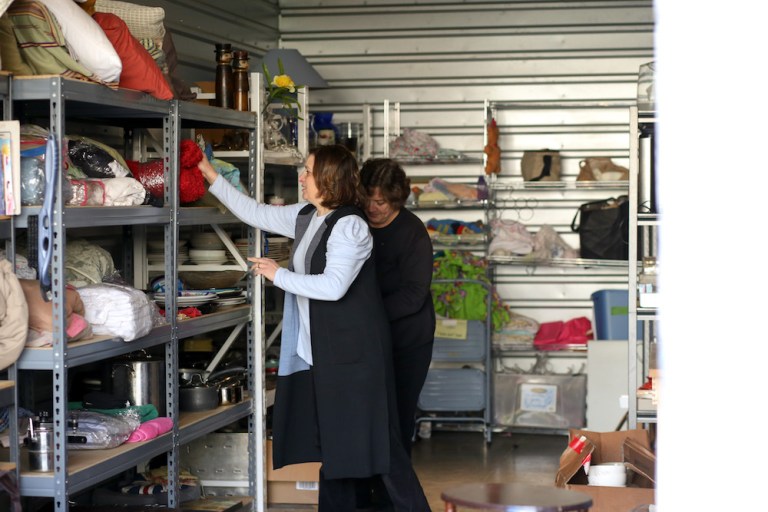
But it turns out being the answer to prayers isn’t always that glamorous. It’s mostly logistics, phone calls, driving, and organizing in a storage unit that is boiling in the summer and freezing in the winter.
Basically, it’s commitment. Come rain or shine.
“When I started this, the mosque asked me for a plan—how I was going to do this. I had no idea what to say,” Oraib tells me. “We just figured it out. Together.” She gestures between herself and Kristin, who nods along in agreement. 
There’s a loud click behind us and the unit goes dark. For the third time since we got here, Kristin turns a dial for the timed light and it resumes its quiet ticking… counting down the minutes until it plunges us into darkness again.
I ask if the experience of working together and getting to know one another has changed them. They turn to look at each other and their eyes well-up. They embrace tightly and laugh heartily.
There’s so much in their smiles… I wish you could’ve seen them.
“What I’ve learned from working with Oraib is that we are women first, and mothers second. And that’s it. What else do I need to know [to feel connected with her]?” Kristin asks.
“And the same goes with the refugees that I’ve met. Being in each other’s lives is humanizing.”
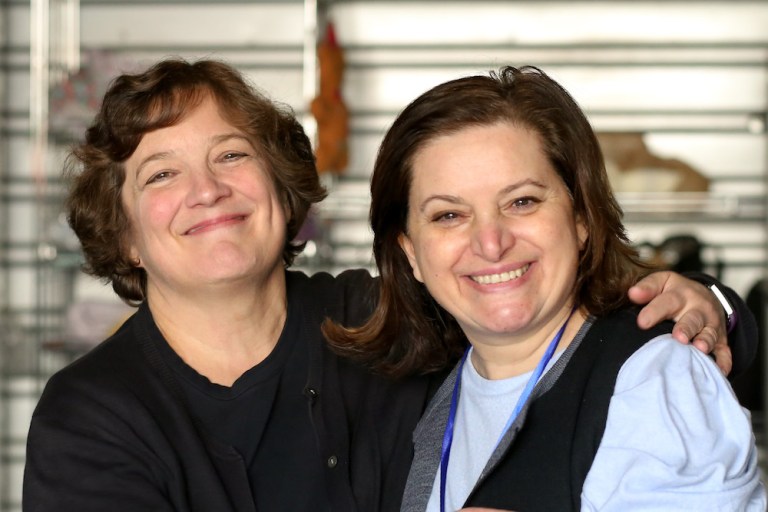
Oraib and Kristin clearly love each other. They clearly love the families they serve. And they are clearly committed to their faith, their religious community, and God. None of those things detracts from the other. If anything, each piece enriches the others.
As I waved goodbye, it struck me that what Kristin and Oraib have, what they are creating, is more than friendship based on shared interests or proximity.
It’s peace—based on partnership, mutual respect, selflessness, and service to others. Based on the truth that you don’t have to choose between loving God and loving your neighbor of a different faith.
Kristin and Oraib prove that peace is made in person… and that it’s best made in community.

How can you include other faith communities in your efforts to serve? Could your church, mosque, temple, or synagogue invite another faith community to join your next local service project? By working together, side-by-side, you can serve your community AND build bridges of peace in the process.
Peacemaker Friday is published weekly to share stories of people unmaking violence around the world. Be inspired. Take Action.

